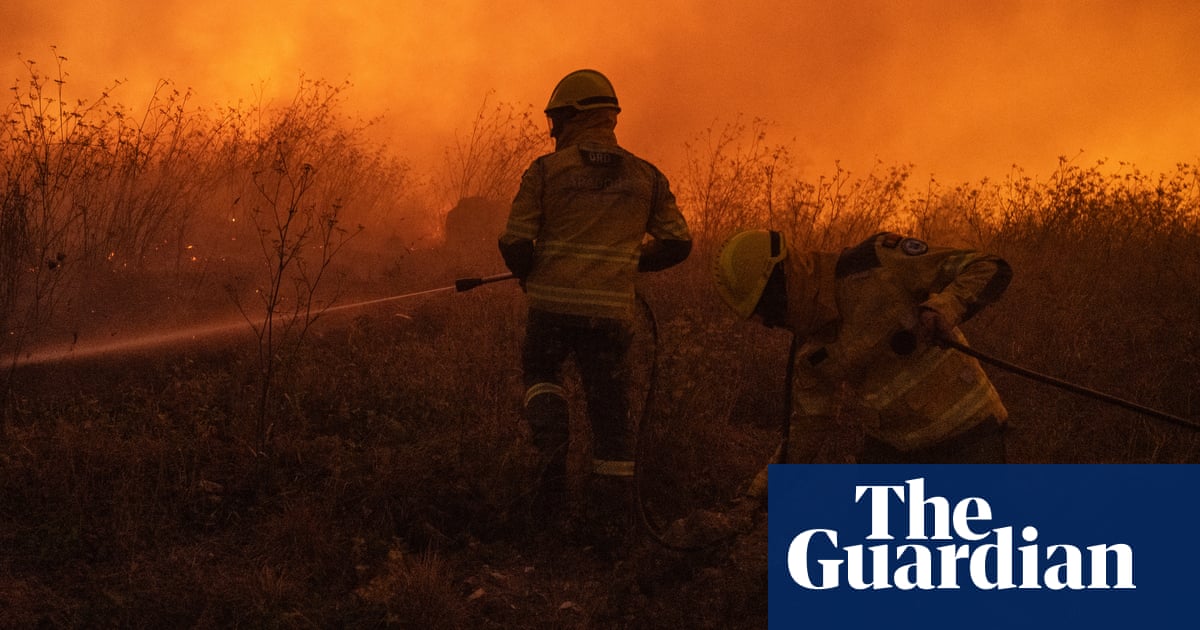European funds to prevent forest fires have been poorly targeted and sometimes distributed in a hurry, according to a report from the EU’s spending watchdog.
The number of forest fires in EU countries has increased dramatically over the last two decades as theclimate crisis fuels ever bigger conflagrations. An area twice the size of Luxembourg has been consumed by flames in an average recent year, killing people, destroying homes and wildlife and sending megatonnes of planet-heating emissions into the air.
TheEuropean court of auditorspraised the decision to devote more money to preventing fires but said European-funded projects were not always spent where they could make the biggest difference. In Greece, authorities were using a map drawn up in 1980 to assess the risk of forest fires. In Portugal, one area selected as a priority for funds contained a zone that was underwater due to a recently built dam.
The auditors raised the concerns against the backdrop of a sharp increase in EU funds to prevent and respond to forest fires. EU funding has increased through the €650bnCovid recovery fund, launched in 2020 with the aim of helping EU member states recover from the pandemic-induced crisis by strengthening environmental policies and their technological base.
Greece, for example, is on course to receive €837m of recovery funds between 2020 and 2026 to combat forest fires, having benefited from €49m in EU funds during the previous seven-year budget period. Spain and to a lesser extent Portugal have also seen a sharp uplift in EU funds dedicated to forest fires.
The €650bn recovery and resilience fund, almost entirely funded by borrowing on markets, has already been criticised by auditors aslacking transparency and accountability.
The latest report highlights how governments have felt pressure to spend money quickly, leading to questionable decisions. Portugal’s rural fire management agency, for instance, was not involved in decisions on how to spend Covid recovery funds worth €615m over seven years to combat forest fires. A Portuguese authority due to receive fire engines could not meet a 48-hour deadline from Lisbon to outline its needs, and ultimately key decisions on the fleet of 55 vehicles were made by national officials.
EU funds can be spent on activities to prevent or respond quickly to fires, such as cutting back vegetation, or building roads to ensure firefighting trucks quickly reach forested areas. The temporary nature of the Covid recovery funds, which expire in 2026, also raised questions about future funding. Vegetation, for example, needs to be cut back every three to four years to maintain firebreaks.
Nikolaos Milionis, the ECA member in charge of the inquiry, said: “We found that on a positive note more human money is being spent on prevention of fires. However, the way the European-funded projects are selected means the money does not always go where it could make the biggest difference.”
Sign up toDown to Earth
The planet's most important stories. Get all the week's environment news - the good, the bad and the essential
after newsletter promotion
He said little was known about the results of EU-funded projects or whether they would be continued.
The European Commission, which oversees EU funds, has been contacted for comment.
Between 2021 and 2024 there were an annual average of 1,874 forest fires in the EU, burning 527,000 hectares a year, compared with an annual average of 567 fires between 2006 and 2010 that laid waste to 268,000 hectares a year.
